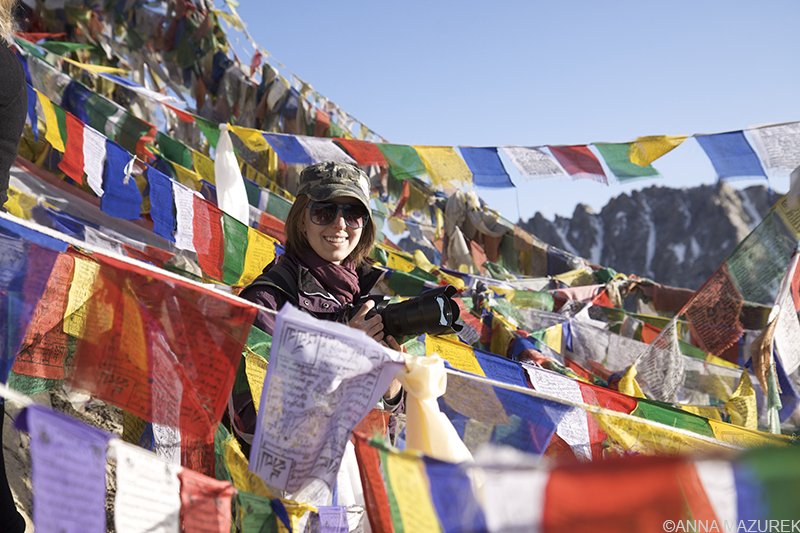
Whether you’re looking to move abroad completely or go for a short stint, there are multiple ways to make money while traveling.
Here’s eight of awesome ways to make money while traveling – I’ve done six of the ones listed below! (This is an excerpt from my book, Good With Money. )
1. Work Remotely at Your Current Job
This is the easiest option: keep your current job and work remotely! Give it some thought, make a list of concerns and find solutions to each. Approach your boss and discuss options. Start with smaller trips – a few weeks. Then, offer to come back a few times a year if needed for big events and meetings. Consider joining a program like Remote Year (remoteyear.com) and Wifi Tribe (wifitribe.co) that brings together professionals who work remotely into a community that travels together. These aren’t cheap but have big perks. (To be honest, they aren’t in my price range but might be in yours!)
I currently teach online for Texas State University, where I used to teach on campus. I pitched and built my own course called Freelancing for Media Professionals, which has been one of the most rewarding courses I’ve taught because of how much I care about the subject matter and making sure the students are prepared for life after graduation! This course is a lot of work but the results are worth it!

2. Be a Tour Guide
I ran photo trips for high school students in Asia for five summers, which was one of the most amazing jobs I’ve ever had. I ran a similar trips in Yellowstone National Park and Prague over the past two summers for National Geographic Student Expeditions. I love teaching people about traveling and photography.
If you are interested in similar positions, research companies that offer trips that cater to your area of interest or expertise: yoga, hiking, marine biology, etc. If you relocate to another place, you can even start running your own specialty tours on Airbnb Experiences. (My friends just did a coffee tour in Buenos Aires last week!)
These types of jobs usually cover all of your travel expenses, which significantly decreases your cost of living since food and accommodation are provided. This is part of how I traveled for so long on such a small budget.
3. Apply for a Working Holiday Visa
If you are under 30, Working Holiday visas are a great way to live and work abroad! I lived in Australia for almost a year on a Working Holiday Visa, which I talk about here. These types of visas allow 18- to 30-year-olds to work while they travel. I worked a few random bar jobs and also photographed bands for Rolling Stone magazine. Pretty random, I know, but the options are endless.
Australia and New Zealand offer one-year visas for Americans and many other nationalities aged 18-30, which allow you to work anywhere. They cost roughly $320 and $165 respectively for the visas depending on exchange rate when you book.
For students or recent graduates, there are similar visa programs in South Korea ($45USD fee), Canada ($200 USD), Singapore ($150 USD fee) and Ireland ($300 USD fee). You must do these programs within 12 months of graduating. The website GoOverseas.com has a great guide for Working Holiday programs for Americans.Check out my Working Abroad post for more details!

4. Teach English
Teaching English is a great way to live abroad and fund your travels. I taught English in Thailand briefly and seriously considered similar opportunities in Korea and Japan. A Bachelor’s degree is required or preferred by many programs. Most programs prefer that you don’t speak the native language. A TEFL (Teaching English as a Foreign Language) or TESOL (Teaching English as a Second Language) certificate is not required for the programs listed below but can increase your salary. (FYI: I don’t have either certification. Private schools usually require it.) The highest paid programs are in Japan and Korea. Visas are almost always provided by employers.
The most established and highest-paid programs provide the most training. Otherwise, be prepared to improvise. Be aware that many programs do not follow the traditional American or British school calendars for holidays (i.e., no Christmas break). For more information, check out my Working Abroad and my interview with an English teacher in Korea.
5. Travel Nursing & Healthcare Providers
If you are a nurse, doctor or another type of medical professional, you can work across the U.S. and abroad in a variety of short-term positions that range from weeks to years depending on the location. The more remote the location, the higher the pay (specialty units also usually command higher rates, e.g., ICUs, Pediatric ICU, etc.). For example, positions in the Middle East can pay two or three times normal salaries and are often tax free.
For U.S.-based positions, the real money is in the housing and food stipends. Both are tax free as long as you are a certain distance from your actual “home.” The travel nurses that I’ve met recommend finding your own housing and taking advantage of both stipends instead of using the housing provided by the travel agency. This ties in with making the most of your work benefits, which I also discuss in my book. Advanced planning is a must for travel nursing since paperwork can take a while. For more information, check out nursing blogs or seek out colleagues with experience. (I’ll be doing an interview with a travel nurse in the Middle East in my next post!)

6. Work on Cruise Ships
I have several friends who work as photography instructors on cruise ships. It’s a great way for them to travel for free and still be paid. Even if you aren’t a photographer, you can find a job on a ship that matches your skill set. Even my doctor once confided in me that she regrets not taking a job as doctor on a cruise ship! Check out AllCruiseJobs.com for postings or apply with individual companies. I recently started working as a photo instructor for Lindblad/National Geographic Expeditions this year! The best thing is that you don’t have very few expenses while you are working since your food is provided!
7. Rent Out Your House OR House/Pet Sit
If you plan on being on the road for a while, rent out your place to cover travel costs and increase your savings. (I don’t believe in paying rent for a place I’m not living in!) Get a friend or family member to manage it while you are away. It’s easier than you think! Sites like HomeAway or Airbnb are great options. I’ve also met people who manage investment properties for a living but spent most of the year abroad since they only need internet access to work!
Another great option is to house and pet sit. While some of these opportunities pay, others simply offer free accommodation. There are several websites that match homeowners with sitters. Most charge an annual fee to access the site: TrustedHousesitters.com and MindMyHouse.com.
8. Work Exchange Programs
Work Exchange programs are a great way to volunteer your time in exchange for room and board. Many companies link hosts with volunteers. The time frame can range from days to months. There is no age requirement, and it’s also possible to volunteer as a family with children. I’ve met many people during my travels who have used the programs below to either fund their travels or subsidize the cost.
- WorkAway offers a variety of options including positions in schools, cafes, hostels and farms. Membership costs $38 USD per year. (I stayed at many amazing hostels run by WorkAway staff in Argentina!) (workaway.info)
- HelpXis an alternative to WorkAway that provides positions at hostels, ranches, and many other options. It’s free to sign up but costs 20 Euros for the two-year premier membership. (helpx.net)
Why isn’t photographer or travel writer listed?
While a good chunk of my income comes from both photography and travel writing, I don’t see these as a short-term way to produce income since it’s a time-consuming process. I spent YEARS making contacts at the publications I work for regularly. It requires relentless self-promotion and a lot of hard work. First, you must research publications and find the ones that are the right fit for you. Then, contact them to see how they use photographers and writers. Then, you submit pitches accordingly. Very few publications nowadays will fly you across the world and cover your expenses. Those days are gone. After a pitch is submitted, it can take months for publication and payment. If this interests you, start reaching out to publications months before your trip. Be sure to ask their rates. It’s not worth anyone’s time to write a 600-word story for $50!
Now, I’ve given you a huge number of options, so I fully expect you all to go out and start exploring the world! You no longer have any excuses!
For my full list of 22 Ways to Make Money While Traveling and an in-depth guide to teaching English, check out my book, Good With Money: A Guide to Prioritizing Spending, Maximizing Savings, and Traveling More, which is available on Amazon. For more about Working Abroad, check out this blog post!


